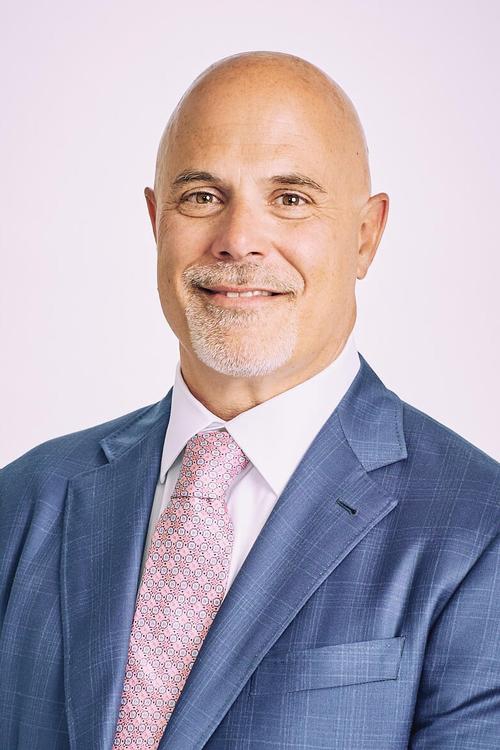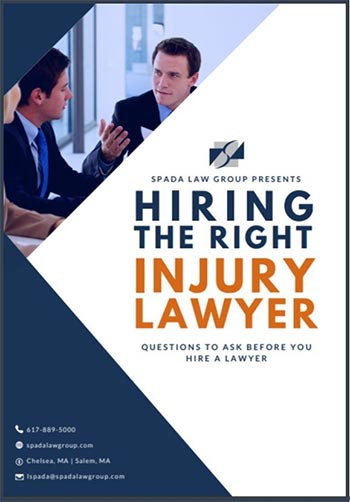
In my practice, I spend a lot of time on the telephone speaking with potential new clients. The conversation usually starts with them telling me in detail how their accident happened and about the injuries they sustained. The conversation usually ends in one of three ways: (1) I tell them that I am interested but I need more information before I can make a decision on whether or not I can help them; (2) I tell them I believe I can help them and I arrange a formal intake meeting during which we memorialize the attorney-client relationship, forms are completed and they become a client; or (3) I tell them I can't help them. If I decline to represent a client I often get a disappointing reaction and some form of the question "why won't you take my case"? Hopefully, this blog will shed light on the most common reasons why an injury lawyer might not take a case.
(1) I Don’t Believe We Can Help You (I think you might be at fault for the accident)
In Massachusetts, if you are more than 50% at fault for an accident then you cannot recover damages. Now, a binding decision on who is at fault and in what percentage is ultimately that of a jury or arbitrator, but if I believe after reviewing the facts that the potential client bears more than 50% of the fault for an accident, I will not get involved. I acknowledge that I am not the last word on who was at fault for an accident, but after almost 30 years of practicing law, I have a pretty good gut on what type of cases we have a shot of winning and what type of cases we’re likely to lose. I always tell the client that it makes sense for them to get a second opinion, that another lawyer might disagree with me and take their case and if they do I wish them much success. Now with that said, there are times when I do get involved in a case that I believe will be very difficult to win, but not impossible. These are often cases with novel fact patterns or theories of liability that I feel strongly about advancing. I am willing to “go for it” in such cases only after the client is apprised of my opinion on the difficulty of the case and has reasonable expectations on the likelihood of success. Some of the most rewarding cases of my career fall into this category.
(2) The Case is Too Small
Injury lawyers get paid a percentage of what they recover for their clients. This is called a contingent fee because it is contingent on recovering money. If the anticipated recovery is so small that the resulting attorney fee doesn’t warrant the time needed to get the matter resolved, then taking the case makes no business sense for the lawyer. This situation is a difficult one to explain to a client because it involves a business decision, not a legal assessment of the merits of their case. Running a law firm is a business. Any lawyer who tells you otherwise is not being straight with you. We all have mortgages, tuitions, personal expenses, and lives to lead. Successful law firms win more than they lose, and they are able to make a profit to sustain themselves and their employees. Yes, we truly do want to help people, but we can’t do that if we are not profitable enough to stay in business. If we decide the amount of time and resources necessary to successfully resolve a case is not warranted by the likely fee recoverable, we must decline the case.
(3) Even if We Win, We Can’t Collect (Can’t Get Blood From A Stone)
Although a case may be theoretically “big” enough, if we can never collect anything we win then is it really worth the effort of the client or the lawyer? In the example above the damages were too small to pursue. In this situation, the damages may be extensive but are uncollectible and therefore the case is not worth pursuing. If a client is injured in a car accident and their injuries severe, yet the person who was at fault for the accident has no insurance and no personal assets to attach and ultimately seize to satisfy a judgment, then neither the client nor the attorney is likely to receive any compensation. This scenario plays out more than most people know and it’s very sad. It kills me to have to tell a seriously injured client that there is no avenue of recovery for them because the at-fault party has nothing. No insurance, no assets, nothing. Spending years on a case, taking it to trial, and “possibly” securing a large jury verdict only to be left with a worthless judgment is not how anyone wants to spend their time.
(4) The Subject Matter is Outside My Area of Expertise
This is a simple analysis for me. If the case does not involve a personal injury matter I don't take it. I'm not qualified to handle bankruptcy, a divorce, or an estate plan. I have been practicing personal injury law exclusively since 1998. To accept a case in an area of law I know little about does a disservice to the client and would put me in the crosshairs of a legal malpractice claim. No thank you. In situations where a client calls with an issue outside my practice area, I will do my best to refer them to a trusted colleague with expertise in that area. In my opinion, one hallmark of a good lawyer (or any professional) is when they know what they don’t know and aren’t afraid to say so. Clients too need to know the right questions to ask to ensure they are dealing with a lawyer who is qualified to handle their case.
(5) The Accident Happened Too Long Ago (Why Didn’t You Call Me Sooner?)
The statute of limitations in Massachusetts in most personal injury cases is three years. This means a personal injury claim must either be resolved or litigation began before the three-year anniversary of the client’s accident. The closer the client contacts me to the three-year anniversary of their injury, the less likely I am to take the case. My main reason for not wanting to get involved in a case too close to the statute of limitations date is because it usually prevents me from doing the type of investigation that I want to do in order to adequately handle the case. Another reason I am not inclined to take an “old case” is oftentimes the client has had one or more lawyers before they called me and for whatever reason, the relationships didn’t work out and they are in dire need of new counsel. I am very reluctant to be the 2nd, 3rd, or 4th lawyer on a case. It usually means I will be limited to and have to live with, the strategies and work product of another lawyer up to that point. My preference is to start with a clean canvas when beginning my representation and handle the case my way from beginning to end. The “old case” seldom allows me to do that.
(6) I Can’t See Myself Working with The Client.
There are times when a potential client calls me, and I can tell after spending 15-20 minutes on the phone with them that we would not be a good fit. I can't tell you how many times I received a call from a client who seems to only be interested in exacting a pound of flesh from an at-fault party or makes the statement that “I’m not interested in the money I just want them to pay”. I understand that emotion, I see it every day. But all the civil justice system is designed to do is to compensate those who have been injured and can prove their case. If I believe the client's primary motivation is not to be compensated for their injuries financially but to exact revenge by way of legal proceedings, then I take a pass. Clients with this mindset, in my experience, are extremely difficult to satisfy, specifically because the system is not intended or designed to be punitive in nature. Also, if at any time I catch the client lying to me I will not continue to represent them. I tell clients all the time I can live with bad facts if I know about them early enough in the process but what I can't live with is being lied to then having that lie exposed later in the process. Once a client is caught lying by either a defense attorney, a judge, a jury, or an insurance company, it is often fatal for the case.
Why You Should Always Schedule a Free Consultation
Like I mentioned above, knowing what you don’t know is often a very good thing, because it allows you to seek out the expertise of someone who does know, before making a decision. For someone who has been injured and wants to know whether they have a meritorious case or not, speaking to an experienced injury lawyer is the best first step. Don’t let the “possibility” of an attorney not taking your case keep you from scheduling a free consultation. Many cases, even those that may raise an initial red flag, are worth pursuing, and a qualified attorney can help you make the right decision on the next steps to take. Contact Spada Law Group online or call or text us at (617) 889-5000 to schedule either an in-person or Zoom appointment with a lawyer who handles only injury matters.



